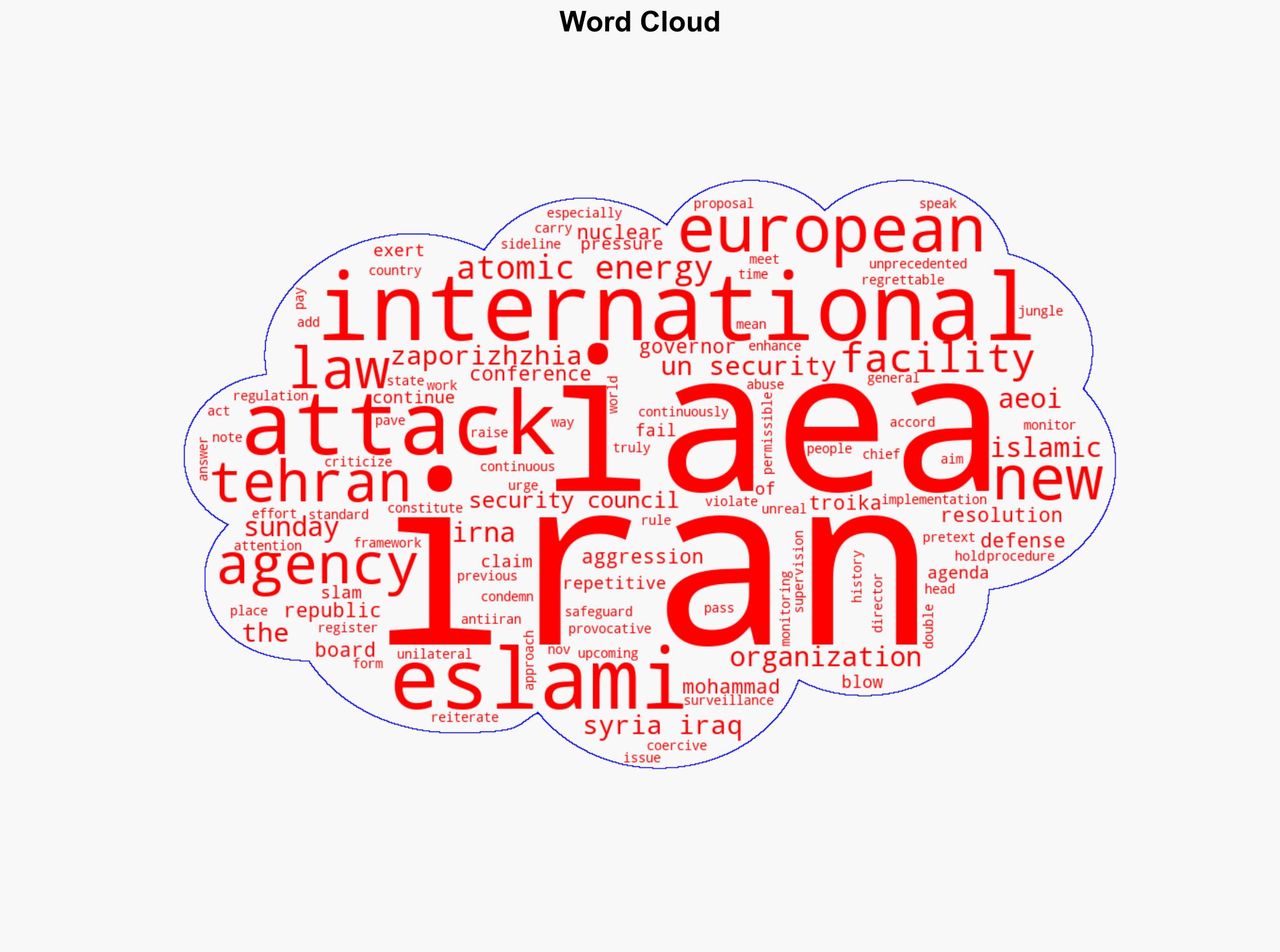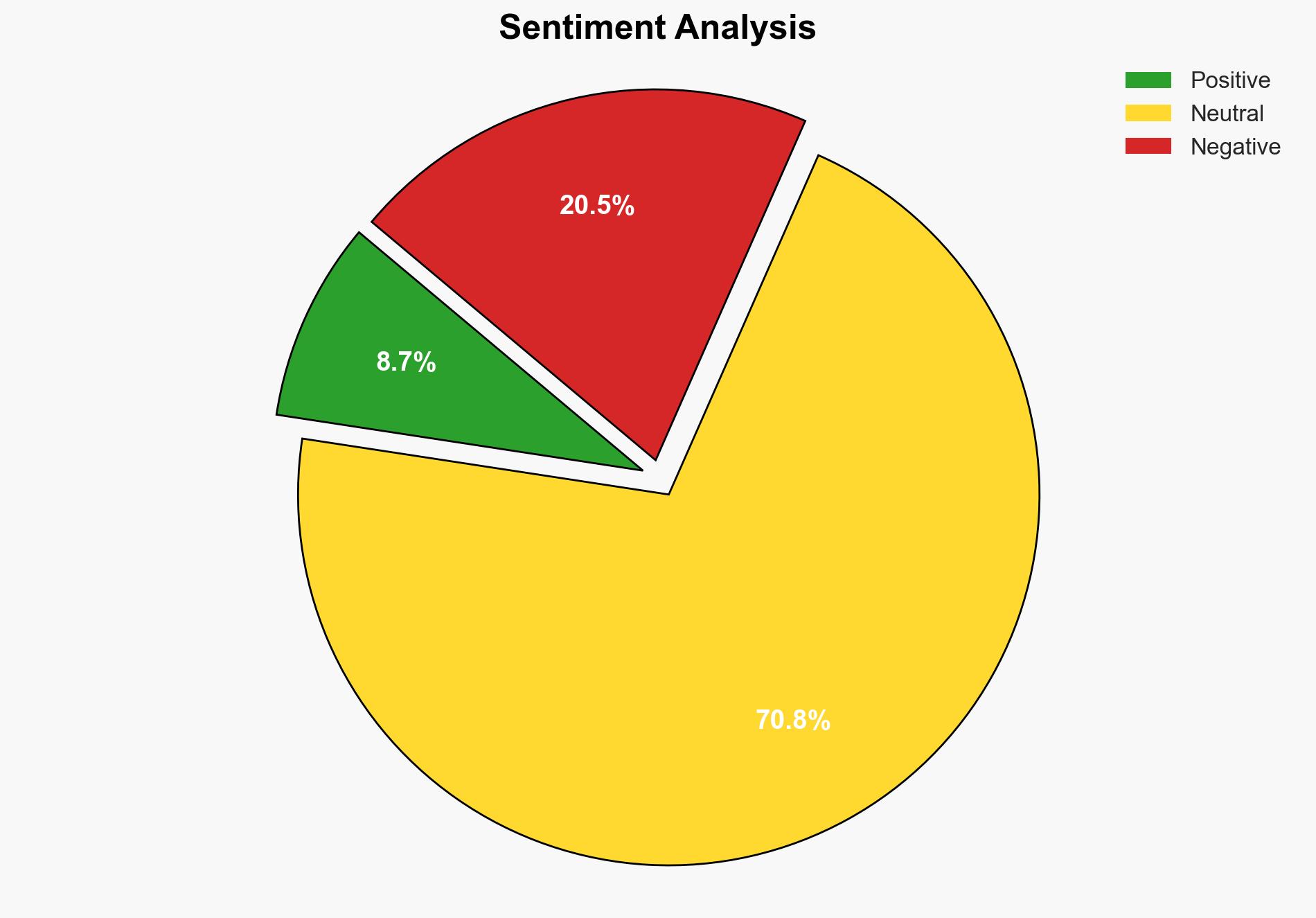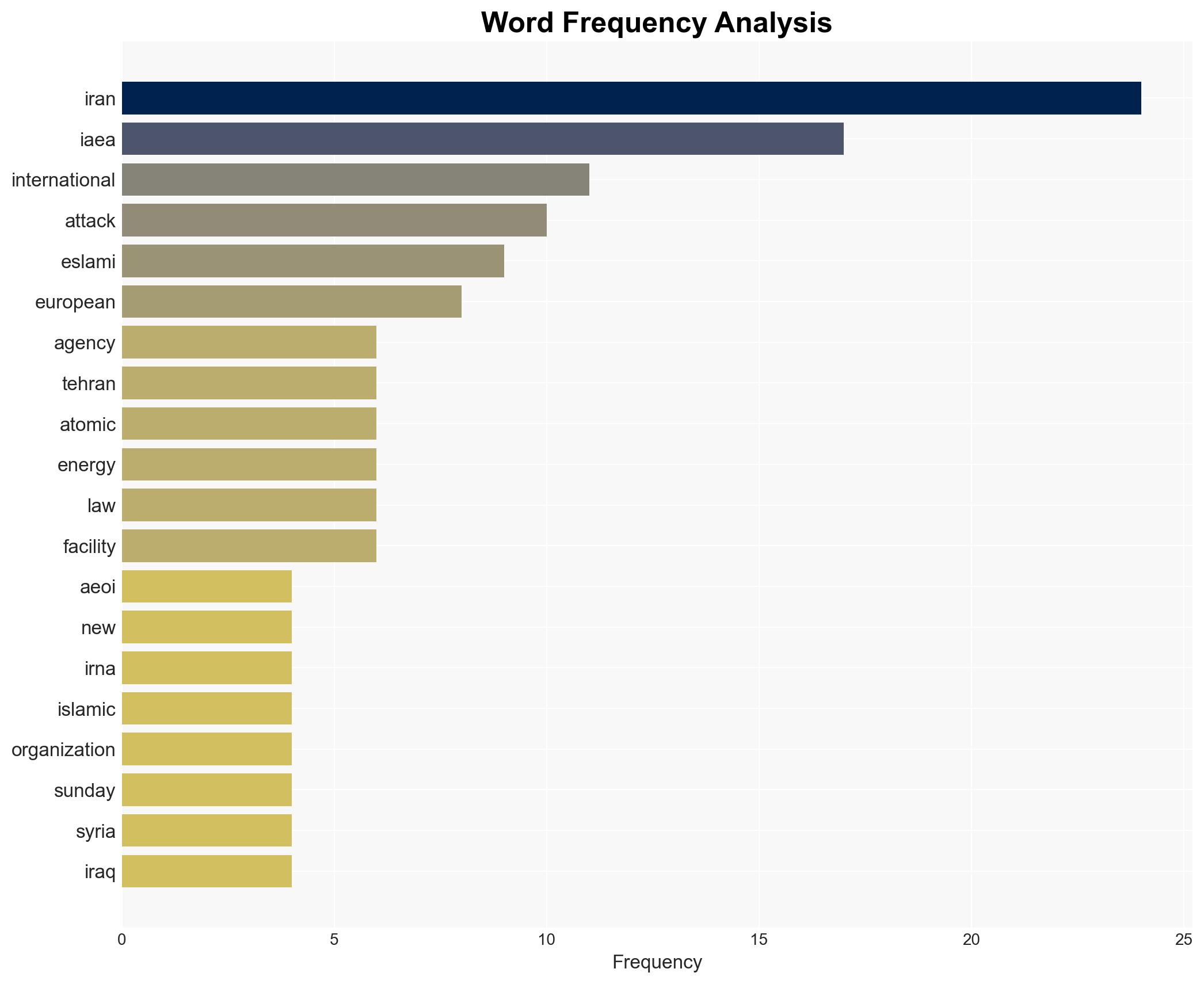AEOI chief says proposal for new anti-Iran resolution is repetitive – Globalsecurity.org
Published on: 2025-11-17
AI-powered OSINT brief from verified open sources. Automated NLP signal extraction with human verification. See our Methodology and Why WorldWideWatchers.
Intelligence Report:
1. BLUF (Bottom Line Up Front)
The proposal for a new anti-Iran resolution by the European Troika at the IAEA Board of Governors meeting is likely a strategic maneuver to maintain pressure on Iran regarding its nuclear activities. The most supported hypothesis is that this is part of a broader strategy to leverage diplomatic and economic pressure on Iran. Confidence Level: Moderate. Recommended action includes diplomatic engagement to address concerns and prevent escalation.
2. Competing Hypotheses
Hypothesis 1: The European Troika’s proposal is a strategic effort to maintain diplomatic pressure on Iran to ensure compliance with international nuclear agreements.
Hypothesis 2: The proposal is primarily a symbolic gesture aimed at appeasing domestic and international audiences concerned about Iran’s nuclear capabilities, with limited expectation of substantive impact.
Hypothesis 1 is more likely given the historical context of sustained diplomatic efforts and the strategic interests of the European Troika in nuclear non-proliferation.
3. Key Assumptions and Red Flags
Assumptions: It is assumed that the European Troika is acting in concert with broader Western strategic interests. It is also assumed that Iran’s nuclear activities remain a significant concern for international security.
Red Flags: The repetitive nature of the resolutions could indicate a lack of new evidence or developments, suggesting potential stagnation in diplomatic efforts. Additionally, Iran’s strong rhetoric may signal a hardened stance, increasing the risk of non-compliance.
4. Implications and Strategic Risks
The continued pressure on Iran could lead to several risks, including:
- Political: Further deterioration of diplomatic relations between Iran and the European Troika, potentially impacting broader EU-Iran relations.
- Economic: Potential for increased sanctions or economic isolation of Iran, affecting global energy markets.
- Cyber: Risk of retaliatory cyber operations by Iran against European interests.
- Informational: Escalation in propaganda and misinformation campaigns by both Iran and opposing entities.
5. Recommendations and Outlook
- Actionable Steps: Engage in diplomatic dialogue with Iran to address specific concerns and explore avenues for de-escalation. Consider confidence-building measures to enhance transparency.
- Best Scenario: Successful diplomatic engagement leads to renewed negotiations and compliance with international agreements.
- Worst Scenario: Escalation leads to increased sanctions and potential military confrontations.
- Most-likely Scenario: Continued diplomatic stalemate with periodic escalations in rhetoric and sanctions.
6. Key Individuals and Entities
Mohammad Eslami: Head of the Atomic Energy Organization of Iran.
European Troika: Comprising the United Kingdom, France, and Germany.
International Atomic Energy Agency (IAEA): The international body overseeing nuclear compliance.
7. Thematic Tags
Regional Focus, Regional Focus: Middle East, European Union, Nuclear Non-Proliferation
Structured Analytic Techniques Applied
- Causal Layered Analysis (CLA): Analyze events across surface happenings, systems, worldviews, and myths.
- Cross-Impact Simulation: Model ripple effects across neighboring states, conflicts, or economic dependencies.
- Scenario Generation: Explore divergent futures under varying assumptions to identify plausible paths.
Explore more:
Regional Focus Briefs ·
Daily Summary ·
Support us
·





